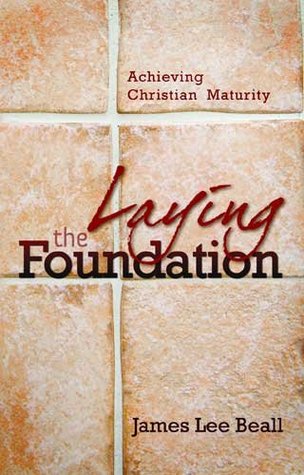Kindle Notes & Highlights
If our life style does not change as the result of Bible study, we have not yet profited as God intends.
Here are five rules for Bible students I have
found useful in my own life and ministry.
Search out all the Scriptures on a given topic.
Tie the teaching to everyday living.
Discipline yourself to provide regular times for study.
You make all the difference.
the foundation bears the weight of the entire structure, it must be done well.
Spiritually speaking, the foundation is the basis of Christian doctrine and experience (and these two are never separate) upon which all later development depends.
3. What Are the Six Foundation Stones?
These six transforming encounters with the risen Christ are: (1) Repentance from dead works. (2) Faith toward God. (3) The doctrine of baptisms. (4) Laying on of hands.
(5) Resurrection of the dead. (6)
Eternal ju...
This highlight has been truncated due to consecutive passage length restrictions.
4. Why Is It Dangerous to Neglect Our Spiritual Foundations?
Repentance is an about face from sin and dead works to the living God. It is an entire change of mind resulting in a total change of life.
Repentance is a command from God to all.
Repentance is not optional; it is the first response we make to Christ’s Lordship.
He is commanding us to turn around. Not until we have begun to turn have we acknowledged His right to rule over us.
Repentance is a gift from God; He enables...
This highlight has been truncated due to consecutive passage length restrictions.
When God gives us repentance, we suddenly realize that our actions and even our attitudes are not a private matter. We do not simply hurt ourselves and other people with our sin; we offend God.
We begin to see sin as He sees it, a direct personal insult to His holiness and love.
Repentance always means turning around, changing—turning from sin and our own ways to God.
Naham means “to feel sorry, to lament, to grieve, to sigh, or to groan.”
Shubh means “to turn back, to make a radical change in attitude toward sin and God.”
It includes both the conscious moral separation, and a personal decision to come back to God.
Metanoia expresses the intellectual and spiritual change which occurs when a sinner turns to God.
The meaning of metanoia is “to have another mind” or “to change one’s mind, attitude, and purpose regarding sin.”
It describes an inner turn...
This highlight has been truncated due to consecutive passage length restrictions.
Epistrepho indicates the distinct change which results from repentance—a change of position in relation to God. This word can be summarized as a spiritual transition from sin to God, from death to life.
What Areas of Man’s Life Are Touched by Repentance?
Repentance changes four basic areas in us: emotion, will, intellect, and spirit.
Repentance involves the complete transfer of our love and investment; from sin and selfish aims to God.
How Are Our Emotions Affected By the Working of Repentance?
Repentance changes the way we feel about sin, about ourselves as sinners, and toward a holy but merciful God.
True repentance includes godly sorrow for sin: a broken an...
This highlight has been truncated due to consecutive passage length restrictions.
The sacrifices of God are a broken spirit: a broken and a contrite heart, O God, thou wilt not despise (Psalm 51:17).
True repentance includes deep humiliation before the Lord in realization of our need.
True repentance includes the sense of shame for the evil things we have done.
True repentance includes genuine hatred of sin and a loathing of our sinful ways.
Often, when we find it difficult to be delivered from specific habits of sin, it is because we have not yet experienced sufficient hatred for sin.
Repentance is a complete change of mind regarding sin, a revolution in viewpoint.
Repentance includes recognition of sin for what it is.
Repentance includes the realization that we not only “do” sinful things, but that we are sinful people.
Repentance includes acknowledging God’s judgment regarding sin and our sinful condition to be right and just.
For I acknowledge my transgressions: and my sin is ever before me. Against thee, thee only, have I sinned, and done this evil in thy sight: that thou mightest be justified when thou speakest, and be clear when thou judgest (Psalm 51:3, 4).
How Does Repentance Work Change in Our Will or Volition?
we accept moral responsibility for our own actions and character.
Secondly, we determine to do something about our sins and the ruin of our character.
we decide to break from sin and throw ourselves upon the mercy of God.


